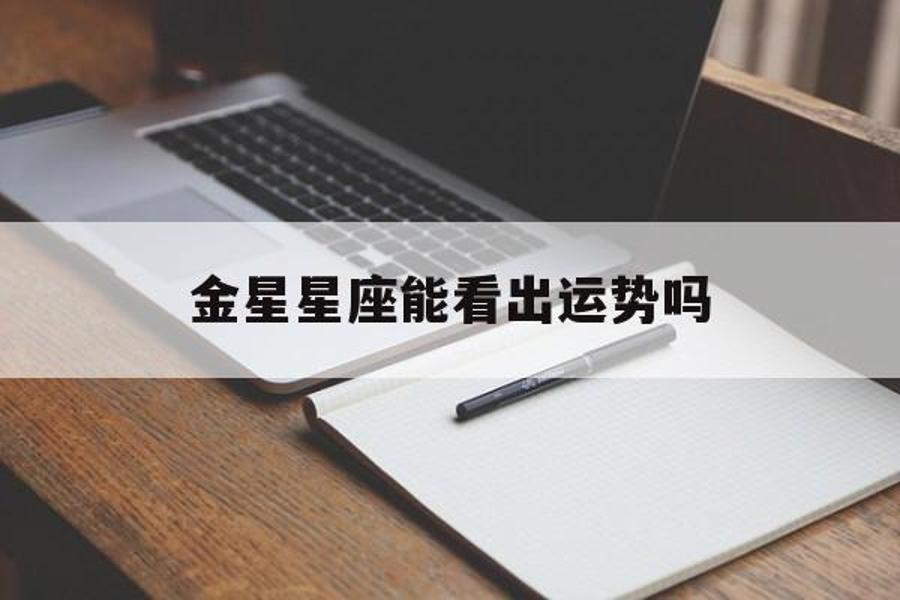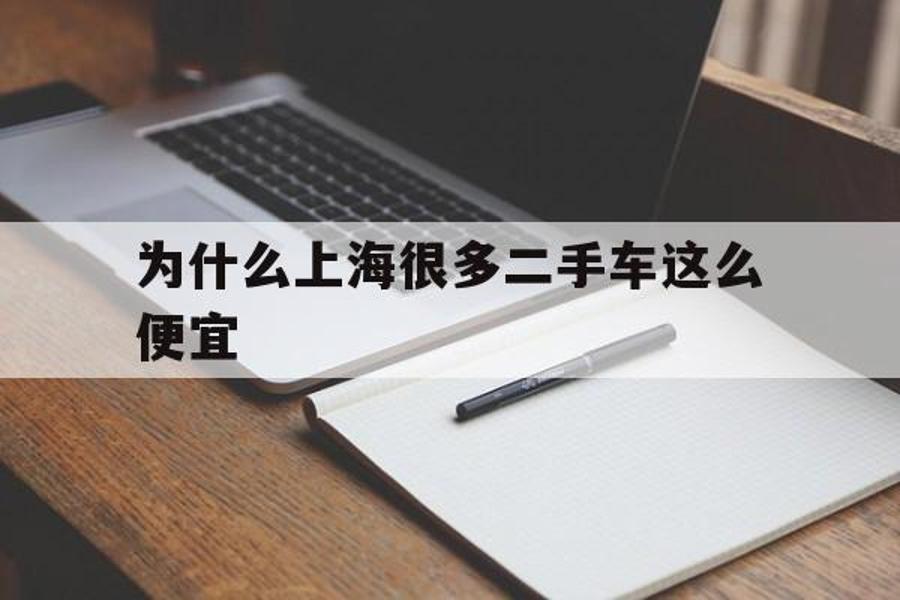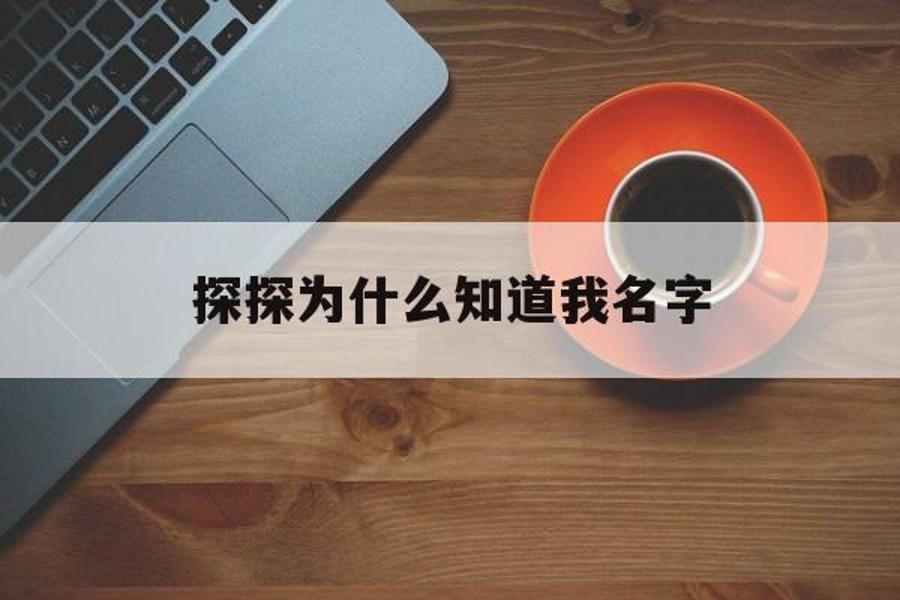1. 小学的英语一百个句子,一到六年级,一百个,重点
一年级(1) Good morning. Good morning.(2) Hello, Tony. Hi, Smith.(3) Hello, How are you?Fine, thank you. And you? I am fine too .(4) Goodbye, Tony. Goodbye, Smith.( (1) Hello, I am Dan. Hi, my name is Pat.(2) What’s your name? My name is Pat.(3) Nice to meet you. Nice to meet you too.(4) Nice to see you, Nice to see you too.(5) Are you Tony? Yes, I am. No, I am not.5) Here’s a balloon. Thank you. (1) It is a computer. It isn’t a chair. (2) What’s this? It’s a desk. (3) Is it a book? Yes, it is. No, it isn’t. (4) this is a nice fan. This isn’t a computer. (5) is this a desk? Yes, it is. No, it isn’t. (1) Is it a bag? Yes, It is. No, It isn’t.(2) This is my bag. This is’t my bag. (3) Is this your rubber? Yes, it is. No, it is’t. (4) Is this a ruler? No, It is a pencil case. (1) Point to the board. Point to …… (2) Look at the door. Look at …… (3) Sit down, please. Stand up, please. (4) Close your books. Open your mouth. (1) Look at me.(your fingers, ^)(2) close your eyes (mouth, )(3) open your mouth. (eyes)(4) you win. I win. (1) This is a lychee. That is an apple.(2) An orange, please. Here you are.(3) What’s this, Mum? It’s an applel.(4) What’s that, Dad? It’s an orange.(5) Here you are. Thank you. (1) This is an apple. It is red. (2) This is a lychee. It isn’t brown.(3) What colour is it? It is yellow and blue.(4) What colour is it? It is yellow too.(5) Is it grey? Yes, it is . No, it isn’t.(6) Here you are. Thank you very much.二年级1 it has ears and small eyes2 look at the fat hens3 what do you see in the picture?4 the big carrots are white 三年级 Nice to meet you!Nice to meet you, too!Hello! Hello!How are you?I am fine, thanks.What is your\his\her name?My\his\her name is jenny.What colour is it?It is red.What is your favourite colour?my favourite colour is blue.Where is my book?There it is!How many pens do you have?Four.Hou do you feel?I am happy!What is this?It is a book.What is the matter?I cut my knee.What are they doing?They are playing.Hou old are you?I am ten years old.May I have two books, please?Sure!四年级 1、This is my computer. 这是我的电脑。
2、That is your computer.那是你的电脑。 3、Is this a teacher’s desk? 这是一张讲台吗? Yes, it is.是的,它是。
4、What time is it? 现在几点? It’s two o’clock.. 两点钟。 5、It’s 9:45. It’s time for math class.该上数学课了。
6、Is this your T-shirt? 这是你的 衫吗? No, it’s not.不,它不是。 7、What colour is it? 它是什么颜色的? It’s white.它是白色的。
8、It’s warm today. 今天是暖和的。 9、Let’s play football. 让我们踢足球吧。
10、It’s cool. 天气是凉爽的。 11、Is it cold?天气是寒冷的吗? 12、How much is it? 它是多少元? It’s ten yuan.它是10元。
13、How much are they?它们是多少元? They’re three yuan.它们是三元。 14、Are they ducks? 它们是鸭子吗? No, they aren’t.不,它们不是。
15、How many horses are there? 有多少匹马? Twelve. 12匹。 五年级 1、Who’s your English teacher? 谁是你的英语老师? Mr Carter.卡特先生。
2、What’s he like? 他是什么样子? He’s tall and strong.他又高又强壮。 3、Is she quite?她是文静的吗? No, she isn’t.不,她不是。
4、She’s very active.她是活跃的。 5、Is she strict?她是严肃的吗? 6、Yes, she is, but she’s very kind. 是的,她是。
但是她非常亲切的。 7、What day is it today? 今天星期几? It’s Wednesday.今天星期二。
8、What do you have on Thursday? 在星期四,你们上什么课? 9、We have English, math and science on Thursdays. 我们在星期四上英语,数学和科学。 10、What do you do on Saturdays? 在星期六你做什么? 11、I watch TV on Saturdays. 我在星期六看电视。
12、What do you have for lunch on Mondays? 在星期一你们吃什么? 13、We have tomatoes, tofu and fish. 我们吃西红柿,豆腐和鱼。 14、What’s your favourite fruit? 你最喜欢的水果是什么? 15、I like apples. 我喜欢苹果。
They’re sweet. 它们是甜的。 16、I like fruit. 我喜欢水果。
But I don’t like grapes. 但我不喜欢葡萄。 17、They’re sour.它们是酸的 18、What can you do? 你能做什么? I can sweep the floor. 我会扫地。
19、I can cook the meals. 我会煮饭。 I can water the flowers.我会浇花。
20、Can you make the bed? 你会整理床铺吗? No, I can’t. 不,我不会。 21、Can you use a computer? 你会使用电脑吗? Yes, I can. 是的,我会。
22、There are two bedrooms, a kitchen, a bathroom and a living room. 有两间卧室,一间厨房和一间起居室。 23、There is a mirror, a bed and a big closet.有一面镜子,一张床和一个大衣橱。
24、The closet is near the table. 这个衣橱在桌子旁边。 25、Many clothes are in the closet. 很多衣服在衣橱里。
26、The trash bin is behind the door.这个垃圾筒是在门的后面。 27、Is there a 。
2. 小学生常见的英文短语
一、短语1、put on your coat 穿上你的外套2、much colder 冷得多3、take your raincoat 带上你的雨衣4、quite cold 相当冷5、make snowmen 堆雪人6、eat ice cream 吃冰激凌7、sit by the fire 坐在火边8、go sightseeing 去观光9、wear T-shirts or skirts 穿T恤或裙子10、stopworking 停止工作11、think about 考虑12、far away 遥远13、ask for help 请求帮助14、give me something to eat 给我一些吃的15、nearly the same 几乎一样16、late March 三月下旬 二、句子1、What’s the weather like today?—It’s sunny/windy/rainy/snowy/cloudy/foggy. 天天气怎么样?—阳光灿烂的/多风的/下雨的/下雪的/多云的/多雾的2、What’s the temperature?—–It’s 27’C. 温度是多少?27度。
3、The school bus is coming. 校车就来了4、Is it much colder than in Guangzhou? 那里是不是比广州冷得多?5、I like skiing. 我喜欢滑雪。6、We’d better take more warm clothes. 我们最好多带点暖和的衣服。
7、What will the weather be like tomorrow?—–It will be。..明天的天气将会是怎么样的?它将是。
8、What’s the weather like in New Zealand?—-It’s 新西兰的天气怎么样?它是。
9、How many seasons are there in。
.?——There are four,spring,summer,autumn,winter. 。
有多少个季节?—有四个,春季,夏季,秋季,冬季。
10、When is autumn?—Autumn is from September to November. 秋季是什么时候?–秋季是从九月到十一月。11、What season do you like best?=What’s your favourite seson?—-I like.summer best.(My favourite season is summer.) 你最喜欢什么季节?我最喜欢夏季12、What are the summer months in Guangzhou?—June,July,August are the summer months. 广州的夏季包括哪几个月?六七八月。
13、In many places of China,spring is usually short.在中国的许多地方,春季是非常短的。14、Summer usually lasts from June to August. 夏季通常从六月持续到八月。
15、Which is the hottest month in Guangzhou?—-July. 广州最热的月是哪个月?–七月。三、一些形容词的比较级1、hot-hotter 2.cool-cooler 3.cold-colder 4.warm-warmer 5.sunny-sunnier 6.windy-windier 7.dry-drier 8.wet-wetter Expressions: 1. aim to do sth. 立志要…… My brother aims to be a famous doctor. 2. be crazy about … 热衷于……;狂热于…… Most boys and girls today are crazy about the singer Adu. 3. more than 不止……;多于…… Hibernation is more than sleep. 冬眠不止是睡眠。
More than one house was burnt down in that big fire last night. 4. take turns。 轮流做…… 常用于take turns at sth. 和take turns to do sth. On our way to Beijing, we took turns at driving. The two daughters took turns to look after their sick mother. 5. make of。
把……认为……;以……为……。 没有被动语态。
常用于what的疑问句或否定句中。 I can’t make anything of what he said. What do you make of our new boss? 6. in space 在太空。
space 前无冠词,但可以用形容词加以修饰。 There are many manned satellites in space. in outer space 在外层空间 7. Now that 连词,既然已……;现在以……。
that 可以省略。 Now (that) I’ve seen how he lives, I know why he needs so much money. 8. in total = altogether 总计;总共 Traveling abroad once will cost you 8,000 dollars in total. 9. come out vi. ①出现②开花;发芽③真相大白④出版 The moon has come out from behind the clouds. Spring has come and the tree has come out. The facts came out through the investigation of the government.通过政府的努力事实已经真相大白。
His new book will come out recently. 10. belong to vt. 属于……。没有被动语态和进行时态。
What does the car parking under the tree belong to? China is a country belonging to the third world. (China is a country which belongs to the third world.) 11. on board adj. & adv. & prep.搭乘(飞机、车、船等)的;在(飞机、车、船等)的。做prep.时其后常跟具体的交通工具。
As soon as we went on board, our ship left the port. There were 500 passengers on board the ship. Sentence patterns: 1. Now that I made this first visit, I hope I can come many more times. now that 是一连词,为“既然,因为”之意。相当于since. 引导的从句在句中作原因状语。
that可以省略。 例如:Now (that) you mentioned it, I’ll explain it to you. 2. While she was waiting for a taxi outside the studio, she met Sam Parish. 此处while是并列连词,连接两个同一时刻发生的动作的句子,while从句中的谓语动词应为延续性动词,可以置于句首或句末。
while有时还可以表示比较。例如: I’d like to read books while I’m traveling on board the train. Motion is absolute while stagnation is relative. 运动是绝对的,而静止是相对的。
I like sports while my younger brother likes listening to music. 3. The story took place in the early 1800s in China. 这个故事发生在19th 早期的中国。
3. 小学英语四种时态的句子结构,一般疑问句,特殊疑问句,否定句和
一般过去时的陈述句:主语+动词过去式+宾语一般过去时的否定句:主语+didn’t +动词原形+宾语 主语+ was/were not +宾语一般过去时的一般疑问句:Did + 主语+ 动词原形+宾语?was/were +主语+宾语?一般过去时的特殊疑问句::特殊疑问词+一般过去时的一般疑问句一般现在时的陈述句:主语+动词原形或单三形式动词(根据主语的变化而变化)+宾语一般现在时的否定句:主语+don’t/doesn’t +动词原形+宾语 主语+ am/is/are +not +宾语一般现在时的一般疑问句:Do/Does +主语+动词原形+宾语 Is / Are +主语+ 宾语?特殊疑问句:特殊疑问词+一般现在时的一般疑问句?现在进行时的陈述句:主语+ Be + 现在分词+ 宾语 现在进行时的否定句:主语+ be+ not+ 现在分词+宾语现在进行时的一般疑问句:Be+主语+现在分词+宾语现在进行时的特殊疑问句:特殊疑问词+一般疑问句一般进来时的陈述句:主语+will/be going to + 动词原形+宾语一般将来时的否定句:主语+won’t/be+not going to +动词原形+宾语一般将来时的一般疑问句:Will + 主语+动词原形+宾语?Be + 主语+ going to +动词原形+宾语一般将来时的特殊疑问句:特殊疑问词+一般将来时的一般疑问句。
4. 小学英语句子大全
最低0.27元开通文库会员,查看完整内容> 原发布者:dongminliang19 小学英语短语大全anewstudent一个新7a686964616fe4b893e5b19e31333433623739学生anewteacher一个新老师I’mnewhere.我是新来的.Welcometoourschool.欢迎到我们学校.excuseme打扰一下theboyinthetree树上的那个男孩letmesee让我看看comedown下来climbtrees爬树inthezoo在动物园里comehere过来themanoverthere那边的那个男人goodevening晚上好ataparty在聚会上mybrother我的弟弟/哥哥theboywithbigeyes大眼睛的那个男孩nicetomeetyou见到你很高兴theoneinthewhiteskirt那个穿着白色短裙的whichone哪一个themanwithabigmouth那个大嘴巴的男人theoneinred那个穿红衣服的thegirlwithasmallnose那个小鼻子的女孩thewomanwithlonghair那个长头发的妇女belateforschool上学迟到theboywithbigears大耳朵的那个男孩theoneinthegreenshirt那个穿着绿色衬衫的男人inthecar在小汽车里mygoodfriend我的好朋友hersmalleye她的小眼睛abignose一个大鼻子You’reright.你是对的anoldwoman一个老太太buyfruit买水果somegrapes一些葡萄howmanykilos多少公斤threekilos三公斤I’dlike—我想要——Hereyouare.给你.theseapples这些苹果thoseoranges那些桔子theseorthose这些还是那些CanIhelpyou?我能为你效劳吗?(营业员用语)bytaxi坐出租车onfoot步行gobytaxi坐出。
5. 小学英语词组有哪些
1. I see. 我明白了。
2. I quit! 我不干了! 3. Let go! 放手! 4. Me too. 我也是。 5. My god! 天哪! 6. No way! 不行! 7. Come on. 来吧(赶快) 8. Hold on. 等一等。
9. I agree。 我同意。
10. Not bad. 还不错。 11. Not yet. 还没。
12. See you. 再见。 13. Shut up! 闭嘴! 14. So long. 再见。
15. Why not? 好呀! (为什么不呢?) 16. Allow me. 让我来。 17. Be quiet! 安静点! 18. Cheer up! 振作起来! 19. Good job! 做得好! 20. Have fun! 玩得开心! 21. How much? 多少钱? 22. I’m full. 我饱了。
23. I’m home. 我回来了。 24. I’m lost. 我迷路了。
25. My treat. 我请客。 26. So do I. 我也一样。
27. This way。 这边请。
28. After you. 您先。 29. Bless you! 祝福你! 30. Follow me. 跟我来。
31. Forget it! 休想! (算了!) 32. Good luck! 祝好运! 33. I decline! 我拒绝! 34. I promise. 我保证。 35. Of course! 当然了! 36. Slow down! 慢点! 37. Take care! 保重! 38. They hurt. (伤口)疼。
39. Try again. 再试试。 40. Watch out! 当心。
41. What’s up? 有什么事吗? 42. Be careful! 注意! 43. Bottoms up! 干杯(见底)! 44. Don’t move! 不许动! 45. Guess what? 猜猜看? 46. I doubt it 我怀疑。 47. I think so. 我也这么想。
48. I’m single. 我是单身贵族。 49. Keep it up! 坚持下去! 50. Let me see.让我想想。
51. Never mind.不要紧。 52. No problem! 没问题! 53. That’s all! 就这样! 54. Time is up. 时间快到了。
55. What’s new? 有什么新鲜事吗? 56. Count me on 算上我。 57. Don’t worry. 别担心。
58. Feel better? 好点了吗? 59. I love you! 我爱你! 60. I’m his fan。 我是他的影迷。
61. Is it yours? 这是你的吗? 62. That’s neat. 这很好。 63. Are you sure? 你肯定吗? 64. Do l have to 非做不可吗? 65. He is my age. 他和我同岁。
66. Here you are. 给你。 67. No one knows . 没有人知道。
68. Take it easy. 别紧张。 69. What a pity! 太遗憾了! 70. Any thing else? 还要别的吗? 71. To be careful! 一定要小心! 72. Do me a favor? 帮个忙,好吗? 73. Help yourself. 别客气。
74. I’m on a diet. 我在节食。 75. Keep in Touch. 保持联络。
76. Time is money. 时间就是金钱。 77. Who’s calling? 是哪一位? 78. You did right. 你做得对。
79. You set me up! 你出卖我! 80. Can I help you? 我能帮你吗? 81. Enjoy yourself! 祝你玩得开心! 82. Excuse me,Sir. 先生,对不起。 83. Give me a hand! 帮帮我! 84. How’s it going? 怎么样? 85. I have no idea. 我没有头绪。
86. I just made it! 我做到了! 87. I’ll see to it 我会留意的。 88. I’m in a hurry! 我在赶时间! 89. It’s her field. 这是她的本行。
90. It’s up to you. 由你决定。 91. Just wonderful! 简直太棒了! 92. What about you? 你呢? 93. You owe me one.你欠我一个人情。
94. You’re welcome. 不客气。 95. Any day will do. 哪一天都行夕 96. Are you kidding? 你在开玩笑吧。
6. 小学生常用英语短语句子
一、短语1、put on your coat 穿上你的外套2、much colder 冷得多3、take your raincoat 带上你的雨衣4、quite cold 相当冷5、make snowmen 堆雪人6、eat ice cream 吃冰激凌7、sit by the fire 坐在火边8、go sightseeing 去观光9、wear T-shirts or skirts 穿T恤或裙子10、stopworking 停止工作11、think about 考虑12、far away 遥远13、ask for help 请求帮助14、give me something to eat 给我一些吃的15、nearly the same 几乎一样16、late March 三月下旬 二、句子1、What’s the weather like today?—It’s sunny/windy/rainy/snowy/cloudy/foggy. 天天气怎么样?—阳光灿烂的/多风的/下雨的/下雪的/多云的/多雾的2、What’s the temperature?—–It’s 27’C. 温度是多少?27度。
3、The school bus is coming. 校车就来了4、Is it much colder than in Guangzhou? 那里是不是比广州冷得多?5、I like skiing. 我喜欢滑雪。6、We’d better take more warm clothes. 我们最好多带点暖和的衣服。
7、What will the weather be like tomorrow?—–It will be。..明天的天气将会是怎么样的?它将是。
8、What’s the weather like in New Zealand?—-It’s 新西兰的天气怎么样?它是。
9、How many seasons are there in。
.?——There are four,spring,summer,autumn,winter. 。
有多少个季节?—有四个,春季,夏季,秋季,冬季。
10、When is autumn?—Autumn is from September to November. 秋季是什么时候?–秋季是从九月到十一月。11、What season do you like best?=What’s your favourite seson?—-I like.summer best.(My favourite season is summer.) 你最喜欢什么季节?我最喜欢夏季12、What are the summer months in Guangzhou?—June,July,August are the summer months. 广州的夏季包括哪几个月?六七八月。
13、In many places of China,spring is usually short.在中国的许多地方,春季是非常短的。14、Summer usually lasts from June to August. 夏季通常从六月持续到八月。
15、Which is the hottest month in Guangzhou?—-July. 广州最热的月是哪个月?–七月。三、一些形容词的比较级1、hot-hotter 2.cool-cooler 3.cold-colder 4.warm-warmer 5.sunny-sunnier 6.windy-windier 7.dry-drier 8.wet-wetter Expressions: 1. aim to do sth. 立志要…… My brother aims to be a famous doctor. 2. be crazy about … 热衷于……;狂热于…… Most boys and girls today are crazy about the singer Adu. 3. more than 不止……;多于…… Hibernation is more than sleep. 冬眠不止是睡眠。
More than one house was burnt down in that big fire last night. 4. take turns。 轮流做…… 常用于take turns at sth. 和take turns to do sth. On our way to Beijing, we took turns at driving. The two daughters took turns to look after their sick mother. 5. make of。
把……认为……;以……为……。 没有被动语态。
常用于what的疑问句或否定句中。 I can’t make anything of what he said. What do you make of our new boss? 6. in space 在太空。
space 前无冠词,但可以用形容词加以修饰。 There are many manned satellites in space. in outer space 在外层空间 7. Now that 连词,既然已……;现在以……。
that 可以省略。 Now (that) I’ve seen how he lives, I know why he needs so much money. 8. in total = altogether 总计;总共 Traveling abroad once will cost you 8,000 dollars in total. 9. come out vi. ①出现②开花;发芽③真相大白④出版 The moon has come out from behind the clouds. Spring has come and the tree has come out. The facts came out through the investigation of the government.通过政府的努力事实已经真相大白。
His new book will come out recently. 10. belong to vt. 属于……。没有被动语态和进行时态。
What does the car parking under the tree belong to? China is a country belonging to the third world. (China is a country which belongs to the third world.) 11. on board adj. & adv. & prep.搭乘(飞机、车、船等)的;在(飞机、车、船等)的。做prep.时其后常跟具体的交通工具。
As soon as we went on board, our ship left the port. There were 500 passengers on board the ship. Sentence patterns: 1. Now that I made this first visit, I hope I can come many more times. now that 是一连词,为“既然,因为”之意。相当于since. 引导的从句在句中作原因状语。
that可以省略。 例如:Now (that) you mentioned it, I’ll explain it to you. 2. While she was waiting for a taxi outside the studio, she met Sam Parish. 此处while是并列连词,连接两个同一时刻发生的动作的句子,while从句中的谓语动词应为延续性动词,可以置于句首或句末。
while有时还可以表示比较。例如: I’d like to read books while I’m traveling on board the train. Motion is absolute while stagnation is relative. 运动是绝对的,而静止是相对的。
I like sports while my younger brother likes listening to music. 3. The story took place in the early 1800s in China. 这个故事发生在19th 早期的中国。
7. 小学英语句子大全
I. Reception入园接待 1. Hi! / Hello! 你好! 2. Good morning. 早上好。
3. Hello, nice to meet you. / Nice to see you. 你好,见到你真高兴。 4. How are you? I am fine, thank you. 你好吗?我很好,谢谢。
5. Please say bye-bye to your mummy / daddy. 请和妈妈/爸爸说再见。 6. Come in, please. 请进。
7. Come on. / come here, please. 请过来。 8. Take off your coat. 脱掉外套。
9. Please put on your morning check- card. 请把晨检牌带好。 II. Group Activity集体活动 1. Are you ready? 准备好了吗? 2. Let’s start. 让我们开始。
3. Who can tell me? / Who can answer me\\? 谁能告诉我?谁能回答? 4. Look at me. 看着我。 5. Look at the blackboard. 看黑板。
6. Be quite. / Keep quite. 保持安静。 7. Sit well. / Sit nicely. 坐好。
8. Put up your hand. / Put down your hand. 把手举起来 / 把手放下。 9. Stop talking. 别说话。
10. Is that clear? / Do you understand? 清楚了么?你明白吗? 11. Read with me. 和我一起读。 12. Return to your seat. 回座位。
13. Stand up. / Sit down. 起立 / 坐下。 14. Listen carefully. 仔细听。
15. Listen to me. / Listen to the music. 听我说 / 听音乐。 16. Say it in English. 用英语说。
17. Do you know? 你知道吗? 18. Let’s play a game. 让我们来做游戏。 19. Let’s write / draw something. 让我们来写点什麽 / 画点什麽。
20. Let’s dancing / singing. 让我们来跳舞唱歌。 21. Let’s listen to a story. 让我们听个故事。
22. Let’s listen to the tape. 让我们听磁带。 23. Let’s watch TV / a play. 让我们看电视 / 看表演。
24. Let’s say it together. 让我们一起说。 25. What did you hear? 你听到什麽了? 26. Who has finished? 谁做完了? 27. Who want to try? 谁想试试? 28. How do you know? 你怎麽知道的? 29. Which one do you like? 你喜欢哪一个? 30. Put your hands on your knees. 把手放在膝盖上。
31. Attention. 注意。 32. You are right. 你是正确的。
33. You are so good! 你真棒! 34. Paint it in red. 把它涂成红色。 35. Open / close your book, please. 打开/ 合上你的书。
36. Don’t be afraid / shy. 别害怕 / 害羞。 III. Outdoor Activity 户外活动 1. It’s time for morning exercises. 早操时间到了。
2. Let’s go out / outside. 让我们到室外去。 3. Let’s go downstairs. 让我们到楼下去。
4. Let’s play on the ground. 让我们去操场上玩。 5. Line up. 排队。
6. Two line. 2条队。 7. At ease! / Attention. / Eyes front. / Hands down. 稍息 / 立正 / 向前看 / 手放下 8. Let’s go. 让我们走。
9. Stop. 停。 10. Count off 报数。
11. Hurry up. 快点。 12. Be careful. 小心。
13. One by one. 一个接着一个。 14. Be slowly, take easy. 慢点, 别着急。
15. Don’t move. 别动。 16. Let’s have a race. 让我们来个比赛。
17. Hand in hand. 手拉手。 18. Make a circle. 围一个圈。
19. Jump on one foot. 单脚跳。 20. Fall in. / Fall out. 集合。
/ 解散。 21. Run. 跑。
22. Wonderful! / Great! 太棒了! 23. You are the winner. 你是胜利者。 24. You are the first. 你是第一名。
25. Are you tired? / Let’s have a rest. 你累了吗?/ 让我们休息一下。 26. Let’s go back to the classroom. 让我们回教室。
27. Don’t push other people / children. 别推别人。 / 别推别的小朋友。
28. Stop pushing. 不许推搡。 IV. Washing and Eating 讲卫生和进餐 1. Use soap to wash your hands. 用香皂洗手。
2. Dry your hands with your towel. 用毛巾把手擦干。 3. Please go to the toilet / bathroom, boys go first. 男孩先去洗手间。
4. Turn the tap off, when you have down. 洗完手后,把水龙头关了。 5. Show me your hands, are they clean / dirty? 让我看看你的手干净了吗? / 脏吗? 6. Are you thirsty? / Are you hungry? 你渴吗?/ 你饿吗? 7. Please take your cup. 请拿你的杯子。
8. Have some water. 喝点水。 9. It’s time for lunch. 午饭时间到了。
10. Don’t spill your foods on the table. 别把你的食物洒在桌子上。 11. Please finish it. 把它吃完。
12. Would you like some rice or soup? 你想要一些米饭还是汤? 13. Do you want to more? 你要加一些吗? 14. Eat a little more. 在多吃一点。 15. Don’t play with your foods. 别玩食物。
16. Eat properly. 好好吃。 17. Are you full? 饱了吗? 18. Wipe your mouth. 擦嘴。
19. Rinse out your mouth. 漱口。 20. Please keep the table clean. 请保持桌面干净。
21. Let’s go out for a walk. 让我们出去走走。 22. Is it delicious? 它好吃吗? V. Sleeping time and Tea time 午睡和午点 1. It’s bed time. 午睡时间到了。
2. Take off your clothes / coat / trousers / shoes. 脱衣服 / 外套 / 裤子 / 鞋。 3. Fold up your clothes / coat / trousers / shoes. 叠好衣服 / 外套 / 裤子,放好鞋。
4. Go to sleep. 睡觉。 5. Close your eyes. 闭眼。
6. Cover yourself up. 盖好被子。 7. Put hands into the quilt. 把手放进被子里。
8. Wake up. / get up. 叫醒。 / 起来。
9. Put on your clothes. 穿衣服。 10. Dress yourself. 自己穿衣服 11. Fold up your quilt. 叠被子。
12. Do your buttons. 扣扣。








